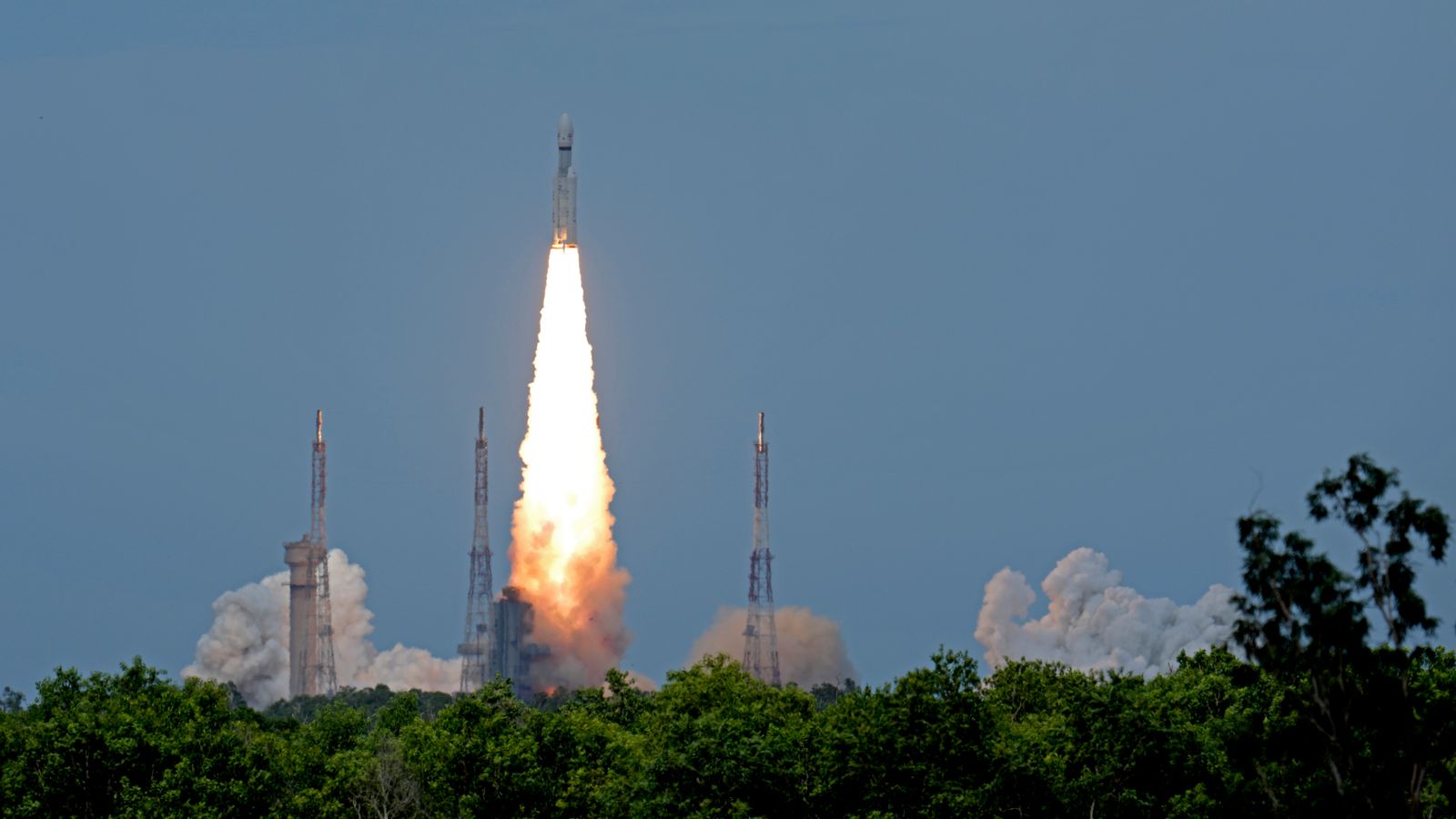India could be about to take one giant leap ahead of Russia in the space race – with its latest lunar mission just days away from attempting to land.
India’s space agency ISRO announced via X, formerly known as Twitter, on Sunday that it will attempt to land its Vikram robotic lander on Wednesday.
The post was sent as news broke about the demise of Russia’s Luna-25, which crashed into the moon’s surface after spinning into uncontrolled orbit.
India’s Vikram robotic lander is due to touch down a few hundred miles from Russia’s targeted site – within the lunar south pole – on Wednesday, according to ISRO.
“Chandrayaan-3 is set to land on the moon on 23 August, around 6.04pm Indian Standard Time (IST).
“Thanks for the wishes and positivity!”
The lander – launched into space in July – is designed to run tests on the composition of the moon’s surface, as well as monitor seismic activity, temperature and radiation levels.
It will also attempt to find the presence of water ice in the lunar soil – something Russia had hoped to do with its Luna-25 lander.
The lunar south pole is of particular interest to scientists, who believe the permanently shadowed craters contain water.
The frozen water in the rocks could be transformed into air and rocket fuel, potentially allowing for longer human trips.
No country has ever actually ventured into the region before.
Russia’s space agency, Roscosmos, had been aiming to beat India’s lander and secure its place as a “space superpower” – despite its experts losing access to Western technology in the wake of the Ukraine invasion.
However, the space corporation said it lost contact with the craft after it ran into unspecified trouble while preparing for the pre-landing orbit.
“The apparatus moved into an unpredictable orbit and ceased to exist as a result of a collision with the surface of the moon,” Roscosmos said in a statement on Sunday.
It comes after the country reported an “abnormal situation” that its specialists were analysing on Saturday. The mission was the country’s first to the lunar surface in almost 50 years.
Please use Chrome browser for a more accessible video player
Russian state television put news of the loss of Luna-25 at number 8 in its line up at noon on Sunday and gave it just 26 seconds of coverage.
News about fires on Tenerife and a four-minute item about a professional holiday for Russian pilots and crews featured higher than the Luna-25’s failed mission.
Be the first to get Breaking News
Install the Sky News app for free
Russia said a special inter-departmental commission had been formed to investigate the reasons behind the loss of the Luna-25.
Despite the crash, Vitaly Egorov, a popular Russian space analyst, said the mission had some successes, including taking pictures of the moon’s surface.
“Luna 25 showed important progress. It flew toward the moon, carried out orbit correction, and tested onboard electronics and scientific tools,” he said via videocall.
“It even managed to collect some small scientific data during the flight and from the lunar orbit. It also sent photos of the moon.
“Russian cosmonautics was not at this level before. But then, an error occurred somehow.”








